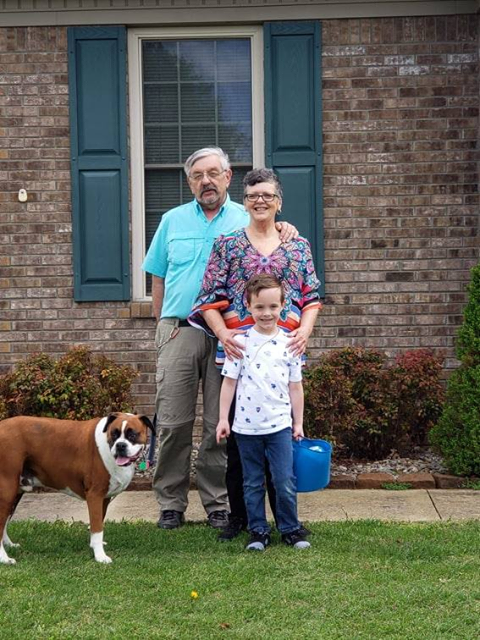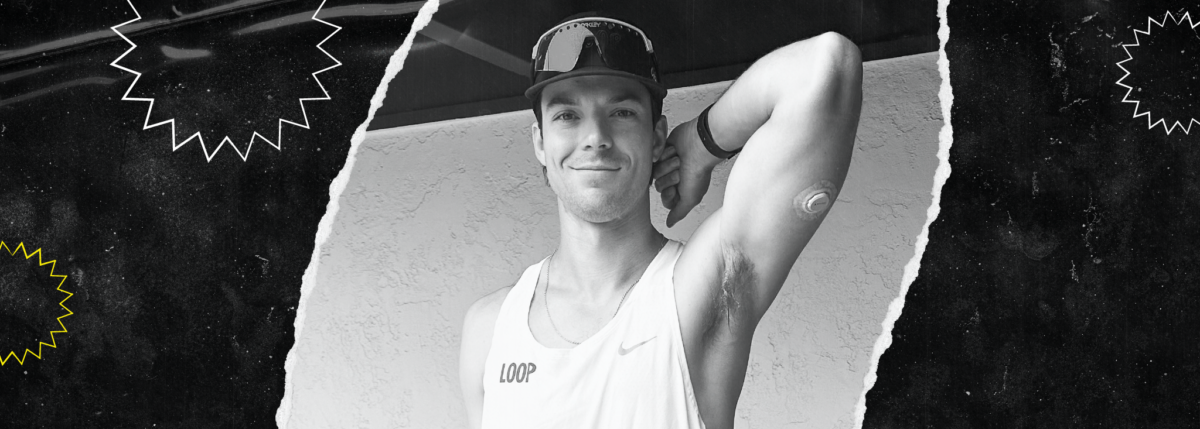Overcoming Hypoglycemia to Own My Diabetes
Written by: T'ara Smith
7 minute read
October 9, 2019
Cindy Lou has been living with Type 2 diabetes for nearly 5 years. With no knowledge of hypoglycemia, her first experience with it was clinically defined as severe hypoglycemia. Over the years she's been living with Type 2 diabetes, Cindy oversees several online diabetes support groups and is also a member of DiabetesSisters. She talked to Beyond Type 2 about how she's come to address hypoglycemia in her life and why it's important for people with Type 2 diabetes to aware of it.
Cindy Lou has been living with type 2 diabetes for nearly 5 years. With no knowledge of hypoglycemia, her first experience with it was clinically-significant hypoglycemia. Over the years she’s been living with type 2 diabetes, Cindy oversees several online diabetes support groups and is also a member of DiabetesSisters. She talked to Beyond Type 2 about how she’s come to address hypoglycemia in her life and why it’s important for people with type 2 diabetes to aware of it.
When were you first diagnosed with Type 2 diabetes and what was your reaction? What symptoms did you have?
I was diagnosed about four-and-a-half years ago on my birthday and I was really just surprised because nobody in my family had it. But there is now it is showing up in others in my family. We have a huge family and nobody had diabetes. However, I had Polycystic Ovarian Syndrome (PCOS) and I was aware of that, but nobody had ever explained to me that I probably needed to be on metformin because of it. I was diagnosed with PCOS years ago and at the time they referred to it as diabetic ovaries, later on, it was named Polycystic Ovarian Syndrome. Years ago, they just didn’t know much about the connection of PCOS to diabetes. As far as symptoms of diabetes, I was going to the bathroom at night, which drove me crazy, and my feet and legs were losing feeling. But I didn’t know these were symptoms of diabetes. Finally, one night I googled searching for my symptoms and what it might be and found that type 2 diabetes was the thing that kept coming up in search.
How has your life changed since you were diagnosed?
I probably had diabetes several years before any doctor ever told me because even the day that I was diagnosed, I came home and googled my blood work and saw that an A1c of 7.8 and fasting of 156 were markers for diabetes. So, I stomped my way back to the doctor and asked, “Do I have diabetes?” and the doctor said yes. So I asked, “At what point were you going to tell me that I have diabetes?” My doctor replied: “Well, we were just going to get you to eat better and lower your carbs.” Most patients don’t know what a carb looks like. Doctors need to explain to us what that means and get us an appointment with a dietitian. We just really don’t understand it until we have educational resources to learn from.
My reaction was, “Okay, I have diabetes, so I’m going to have to get really proactive here and find my own help.” I started calling the health departments and they didn’t offer any help. Finally, I called the regional health department for our area, and the dietician called me back in about three days and told me she teaches classes on Fridays and invited me to come. I was a really proactive person from the beginning. I changed doctors and I started going back through my blood work and was able to trace diabetes back three years in my blood work. I had been a person with diabetes for three years and no one told me.
Was your new doctor more receptive? Were they more knowledgeable?
I told him, “I have diabetes, and I don’t know what to do.” Then he explained it’s chronic and progressive and it’s going to get worse. I told him I would find a way to manage it and he laughed and said there’s really no way out of this one. So, I went to the dietician and I dropped 70 pounds in 10 and a half months by eating just like she told me to. My next A1C was 5.1 and my doctor nearly fainted and asked me how I had managed to do this. I was clear—there’s just nothing that goes in my mouth that’s not a vegetable and just a tiny bit of meat. He wanted me to slow my weight loss down, so I started adding starch and whole grains to my diet.
Did your doctor ever talk to you about hypoglycemia? Did he give you any tips on what to do when you experience a low? How were you feeling?
He didn’t talk to me about that. In fact, the first time I had a low, my blood sugar dropped down to 2.6 mmol/L47 mg/dL. When I had my first low, it froze me in place. I was at Walmart and held onto the store cart and finally sat down on the floor. A very nice lady asked me what was wrong, I told her I was a person with diabetes and low and she gave me candy. I realized had I not been to the classes taught by the dietitian, I wouldn’t have known what was happening to me. I was taught to keep glucose tablets on hand. Even though I wasn’t on medication, I was taught to carry them with me. This experience scared me to death, and I cried, which I hardly do—it takes a lot to make me cry. I was shaking, sweating and pale. It took me a day to get over it. I also found that I am allergic to something in glucose tablets so my dietitian suggested I use three rolls of smarties candy to raise me, it’s simple sugar and dissolves fast in my mouth.
How often do you experience low blood sugar?
Not very often now. In the beginning, when I first started losing weight, I probably experienced it every two weeks. But now, it may happen if I walk too much, get busy around the house doing things and forget to eat. All of a sudden, I may start sweating. Once you have a couple of lows, you get really smart about carrying food with you. When I leave home I always have something to raise a low with me and something to eat to hold my numbers up until I can get to food and I carry water with me everywhere now too. While I was learning how to do all this, I had one night of repeated lows. I would eat candy and though my blood sugar would rise, it would drop again. And so I called the dietitian the next day and told her I ate smarties and couldn’t get my blood sugar to stay up. She’s like, “Oh honey, you need to add some starch protein and fat, just a little after you are back to 4.4 mmol/L80 mg/dL and then it’ll stay up.” That was the fix I needed to hear at the time!
How do you prevent hypoglycemia now?
I know more about what I’m doing, so I carb-load if I am going to exercise. If my blood sugar drops to 4.4 mmol/L80 mg/dL with candy, preferably smarties or by eating a fruit, it just depends on how low I am. I use three rolls of smarties if I am under 3.3 mmol/L60 mg/dL on my meter, if I am 3.6 mmol/L65 mg/dLor above I have fruit, then I wait 10 minutes and if I’m not up to 4.4 mmol/L80 mg/dL, I treat again. And once I hit 4.4 mmol/L80 mg/dL, I add some starch, protein and fat to hold my number up. It’s the hardest thing in the world to wait during those 10 minutes because you want to eat everything in the refrigerator. But it’s the right thing to do because otherwise, your blood sugar goes too high.
When you’re out in public, are you able to recognize when another person with diabetes is having a low?
Yes. There was a lady at the grocery one day and I noticed her grab the shelf. I asked her if she was okay and she replied she didn’t understand what was happening to her. When I inquired if she had diabetes, she said she had type 2 diabetes. We used my meter to check her blood sugar and I gave her smarties candy. Once her blood sugar was back up, I gave her some peanut butter crackers from my purse and told her not to drive until her blood sugar was at least 5.5 mmol/L100 mg/dL and to always keep a meter with her. She thought she didn’t need to because she wasn’t on medication. However, I told her neither was I, but I keep my meter with me because lows can happen.
Have you ever heard of glucagon? How did you hear about it?
Yes, but that’s not something I’m going to carry with me. I’ve got smarties candies and peanut butter crackers with me everywhere. I don’t feel like there’s anything else that I need at this point because I seldom have a low now. My weight and blood sugar are stable.
I read all the time, which is how I learned about it, and manage diabetes support groups online. I can’t help other people if I don’t keep myself really well educated to address the kinds of problems that come in in our group. I read constantly and I am very blessed to be a small part of a type 2 online educational website and YouTube channel called Diabetes—What to Know that does educational videos and live type 2 informational events online. I also am blessed to be associated with the Divabetic organization and diabetes podcasts online.
What do you think people with Type 2 diabetes should know about hypoglycemia? Do you find that it is a serious issue and that is something that we need to be talking more about?
Yes, every doctor needs to spend time educating their patients about hypoglycemia. That needs to be one of the first things they talk to their patients about. A diabetes diagnosis is scary enough, and if a newly-diagnosed diabetic has a low and doesn’t know how to handle it, they think they’re dying. It is a very scary thing to have happen if you don’t understand it and can absolutely cause a patient to kind of give up and feel like no matter what they do, that their diabetes is in control of them. We can motivate through the support groups so well, but when people have a low and the doctor has given them the speech of “it’s chronic and progressive,” then they assume that their body’s shutting down. When doctors talk about how high your numbers are, they should also talk about how lows are treated and also, talk about the importance of eating your meals on time, following the advice of a dietitian and not over or under eating.
Doctors should talk more about the effects of hypoglycemia and driving, especially for those who’ve been driving for a long period of time. You shouldn’t drive unless you’re around 5.5 mmol/L100 mg/dL. I have had so many diabetics tell me their stories of having been in accidents because their blood sugar was too low.
What are some steps that people with Type 2 diabetes today can take to become more aware of hypoglycemia, especially those who don’t have a doctor who is willing to educate them on the subject?
My answer to anybody would be the first thing you need to do is go to Walmart and buy a Relion Prime or Premiere meter, test strips, lancing device and lancets. Even if your doctor told you you don’t need to test, go to Walmart and get the $9 ReliOn meter and it’s test strips, lancets and lancet device—under $30 for the whole thing. The pharmacy techs can teach you how to test your blood sugar and set up your meter for you. Carry that little meter with you everywhere you go.
Anytime you feel off, test your blood sugar and write everything down—including what you’re eating, how much and what your numbers were before the meal and at two hours after. Soon, you’re going to understand what’s raising your blood sugar and what helps you lower. If you’re too low, you know you need to eat to increase that number before doing anything else. And again, always keep something with you to raise low blood sugar.
That is great advice, Cindy. What are empowering words that you have for people with Type 2 diabetes, especially those who are learning about hypoglycemia?
Don’t let your diabetes own you. You own it.

Author
T'ara Smith
T’ara was diagnosed with type 2 diabetes in July 2017 at the age of 25. Since her diagnosis, she focused her academic studies and career on diabetes awareness and living a full life with it. She’s excited to have joined the Beyond Type 1 team to continue her work. Two years later, T'ara discovered she'd been misdiagnosed with type 2 and actually has latent autoimmune diabetes in adults (LADA). Outside the office, T’ara enjoys going to the movies, visiting parks with her dog, listening to BTS and cooking awesome healthy meals. T’ara holds an MS in Nutrition Education from American University.
Related Resources
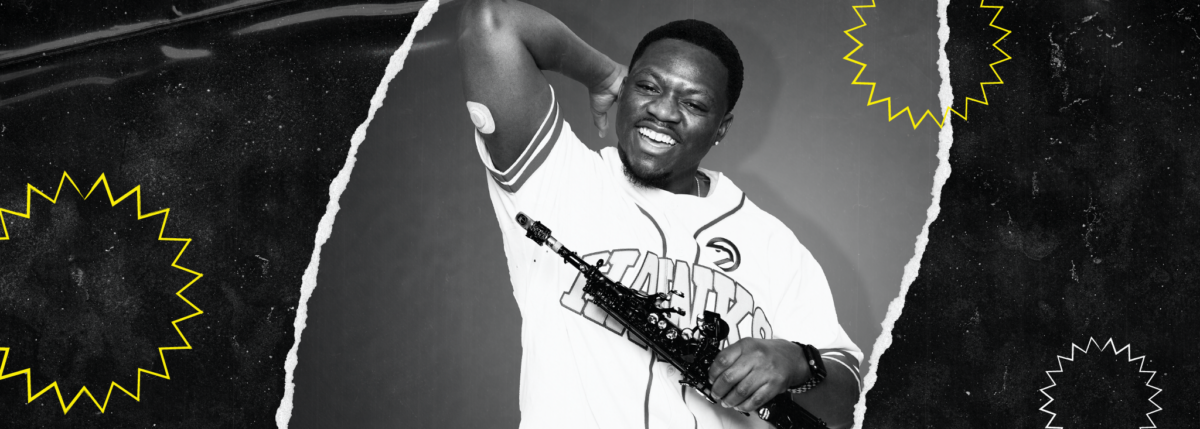
Antoine Gibson is no stranger to overcoming challenges. As a saxophonist and marathon runner living...
Read more
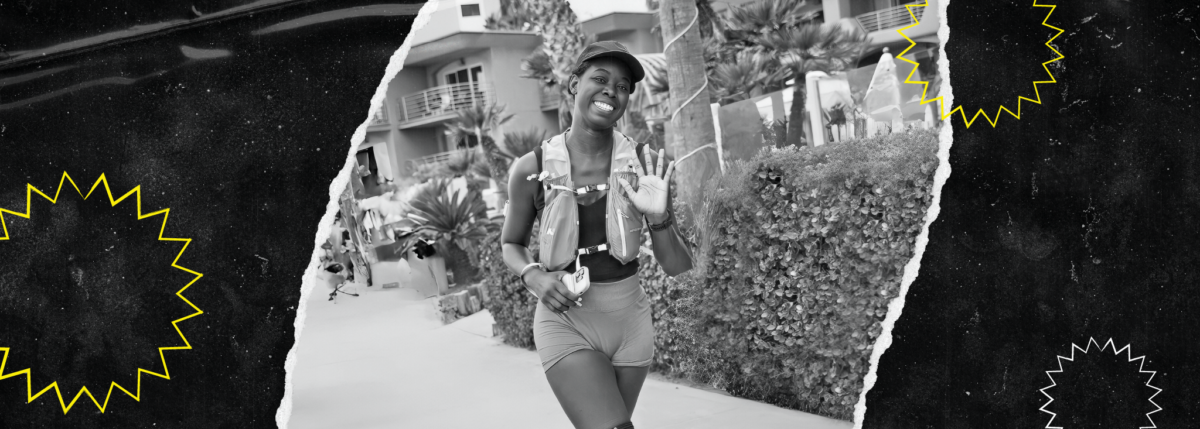
Danica Collins not only prepared for one of the most challenging physical events of her...
Read more
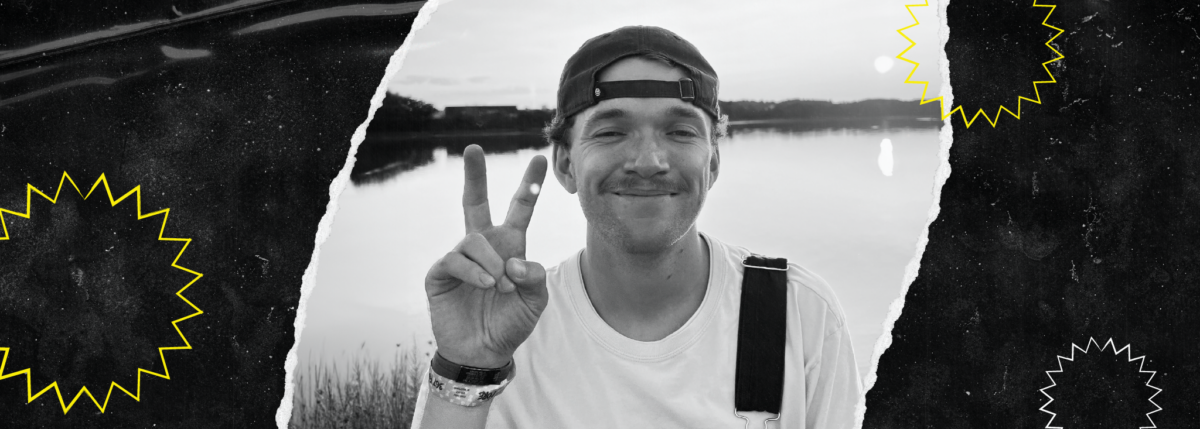
Beyond Type 1 is spotlighting inspiring athletes with type 1 diabetes as they prepare for...
Read more


